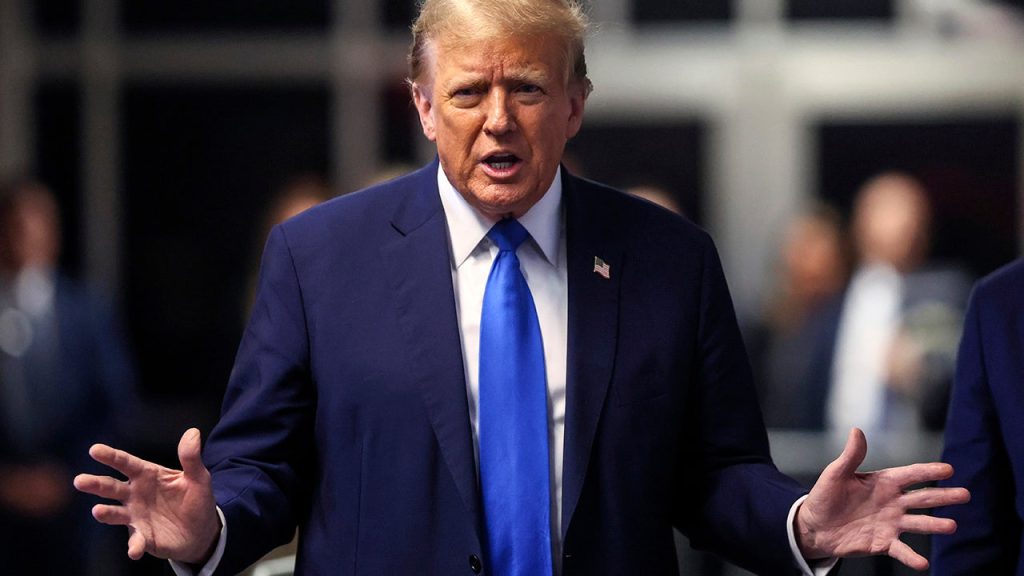Former President Trump criticized the Manhattan criminal court trial against him, questioning why the District Attorney’s Office took up the case after other law enforcement agencies had not pursued charges. He pointed out that the Justice Department and the Federal Elections Commission had previously dropped investigations into his payments. Trump argued that it was unprecedented for a state court to involve itself in federal elections, and he accused the trial of being politically motivated to hurt his chances as a presidential candidate.
The trial in Manhattan began in earnest with the first witness, former American Media Inc. CEO David Pecker, testifying. The case revolves around a $130,000 payment made by Trump’s former attorney, Michael Cohen, to adult film actress Stormy Daniels to prevent her from disclosing an alleged affair with Trump. The trial is focusing on a “catch-and-kill” scheme where media companies buy the rights to a story but do not publish it, which allegedly took place before the 2016 election. Trump has denied the affair and pleaded not guilty to all charges brought against him.
Manhattan DA Alvin Bragg accused Trump and others of employing a “catch and kill” scheme during the election to bury negative information and boost his electoral prospects. Bragg alleged that Trump went to great lengths to conceal this conduct, leading to false entries in business records in an attempt to violate state and federal election laws. Trump defended the payments to Cohen as legal expenses and criticized the trial as being driven by political motives to interfere with his campaign efforts.
Despite Trump’s criticisms, the trial proceeded with jury selection and witness testimonies. The prosecution aims to present evidence supporting their case against the former president, including details of the payments made to Daniels and the alleged attempts to cover up the affair. Trump’s legal team is expected to present their defense against the charges brought by the Manhattan DA. The trial has attracted significant attention as it unfolds in Manhattan criminal court, with both sides presenting their arguments and witnesses to support their case.
Trump reiterated his belief in the legitimacy of the payments made to Cohen and dismissed the charges against him as minor in comparison to violent crimes. He labeled the trial as a “Biden trial” orchestrated to undermine his presidential candidacy and accused it of being unfair. Trump expressed frustration at being unable to campaign freely due to the ongoing trial but remained confident in his poll numbers and public support. The former president’s ongoing legal battle in the Manhattan criminal court continues to generate controversy and public interest as the prosecution and defense present their arguments and evidence in the courtroom.
As the trial against Trump progresses, the former president maintains his innocence and asserts that the payments made to Cohen were legitimate legal expenses. The prosecution, led by Manhattan DA Alvin Bragg, accuses Trump of engaging in a scheme to suppress negative information before the 2016 election, ultimately violating state and federal election laws. Despite Trump’s criticisms of the trial as politically motivated, the legal proceedings in Manhattan criminal court proceed with witness testimonies and evidence presented by both sides. The outcome of the trial will have significant implications for Trump’s political future and legal standing.


